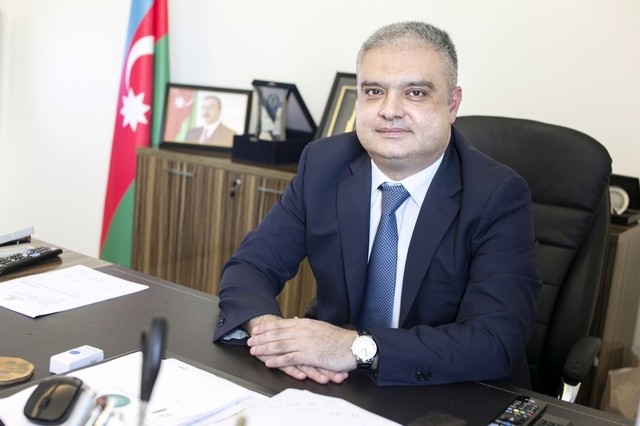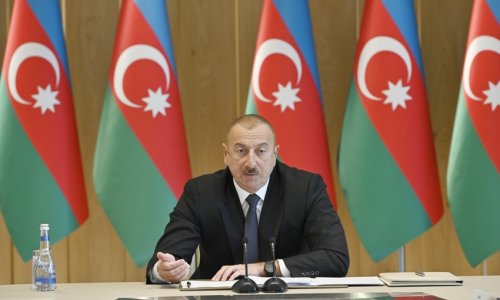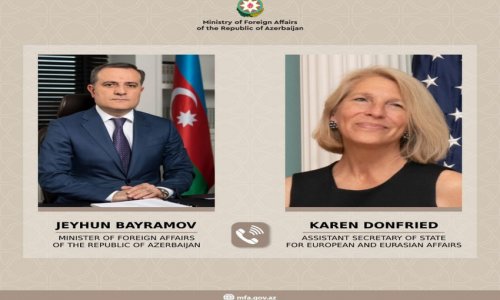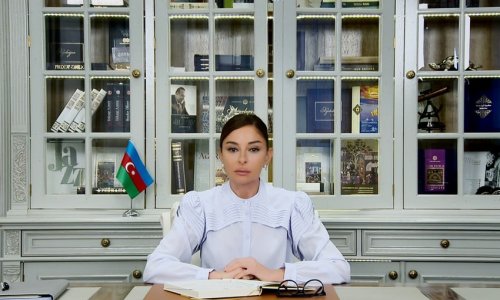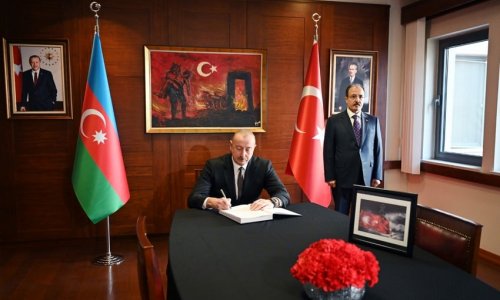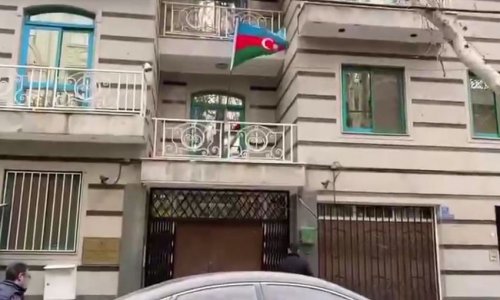Parviz Ismayilzada is a quintessential career diplomat. For the past 22 years, since joining the foreign ministry of the then newborn Republic of Azerbaijan, he has served his country in a variety of posts in ministries, embassies and consulates around the world.
"I have been happy just doing that,” he says, now the country’s consul general in Dubai after previous postings in Europe and the Middle East. "This job has its own rewards and I have never really thought about the next assignment.”
But recently Mr Ismayilzada has had to add a couple of other strings to his diplomatic bow. As trade relations between Azerbaijan and the UAE have grown, he has spent much of his time on the commercial and economic aspects of his job.
Simultaneously, with Azerbaijan’s strategic push into international sports marketing and the staging of big sporting events, he has developed a keener interest in sport. Now he pays as much attention to the sports results as he does to breaking world news on the TV in his Jumeirah consular villa. "You have to keep up with all the news,” he says.
Being Azerbaijan’s emissary requires many diplomatic judgment calls. The country proudly values the independence it gained from the former Soviet Union in 1991, and was the first former Communist country to do a strategic commercial alliance with the capitalist world – a tie-up with western oil companies, led by BP, in the "deal of the century” in 1994.
But at the same time, geographic, commercial and cultural ties with Russia remain strong, while the country’s position as a Shia Muslim neighbour of Iran with long-standing friendship with Turkey and rapidly expanding ties with the Arabian Gulf countries all add to the diplomatic dynamic.
In the background all the time is the 20-year-old "frozen war” with Armenia, which occupies 25 per cent of Azerbaijan territory despite repeated calls from the international community to withdraw.
"Russia, Ankara, Tehran are all important capitals for us, as of course are Washington and London. But recently, the UAE has been growing in importance,” says Mr Ismayilzada.
The UAE was one of the first countries to recognise Azerbaijan 24 years ago, and there has been a permanent intergovernmental commission between the two countries since 2006 to promote trade and economic ties. But this year there has been a new flurry of business and commercial activity, including a round of agreements clinched during an official visit by Sheikh Mohammed bin Rashid, Vice President of the UAE and Ruler of Dubai.
"The links between Azerbaijan and the UAE are stronger than ever. There are now 263 Azerbaijan companies registered in the UAE, with businesses in oil services, real estate, finance and construction,” says Mr Ismayilzada.
The relationship also works the other way. The UAE is the fifth-biggest foreign investor in Azerbaijan, which imports consumer goods and construction equipment from the Arabian Gulf to help with the planned diversification of the Azerbaijan economy, an area where the UAE can lend experience.
That diversification has been a priority for Azerbaijan under the president Ilham Aliyev, who has used the oil wealth of the Caspian shores to invest in infrastructure and other non-oil capital expenditure. Baku has emerged as one of the most dynamic cities in the region – the "Dubai of the Caspian”, as it is sometimes called.
The benefits of diversification have been demonstrated over the past year, as oil prices have plummeted with knock-on effects for Azerbaijan’s economy and public finances. In February, in light of the oil decline, the government devalued the Azerbaijan currency, the manat, by 33.5 per cent against the US dollar and shifted from a dollar peg to a dollar-euro peg.
It was a radical step.
"The action was taken very quickly. For a short period, it was difficult and uncertain, but now it has stabilised. There have been some small cuts in public spending and government budgets, but the long- term strategic programme is relatively unaffected,” he adds.
Recently, Moody’s Investor Services, the credit rating agency, said that Azerbaijan’s "high level of foreign assets provides a large buffer to mitigate the adverse effect from the decline in oil prices on the country’s economy”.
Azerbaijan has also had to deal with the effects of western sanctions imposed on Russia, its main trading partner. But what may have been lost in remittances from Azeri workers in Russia has been compensated by increased exports of foodstuffs and agricultural produce from Azerbaijan.
One part of the strategy that has remained as planned is Azerbaijan’s move into the global sports business. This has already paid off with the multimillion-dollar sponsorship of Atletico Madrid during the Spanish club’s league title-winning season in 2014, which brought the Land of Fire logo to millions of television viewers worldwide.
The sporting initiative has continued, with the successful staging of the first European Games in Baku this summer. Next year, a Formula One grand prix race will be staged in the streets of the Caspian city, and in 2017 the Islamic Solidarity Games will also be held in Azerbaijan. The country has also been awarded the right to stage four games of football’s Euro 2020 championship.
"Sport is in our blood, and it also makes good business and commercial sense,” says the consul general.
Direct sporting links with the UAE, in falconry and equestrianism, have grown stronger with several recent visits by prominent Emirati families to Azerbaijan.
The current posting is Mr Ismayilzada’s second stint in the UAE, where his children have grown up and are being educated. "Dubai has been good to me, and I feel a responsibility to making relations between our countries as strong as possible,” he says.
(thenational.ae)
www.ann.az
Follow us !

